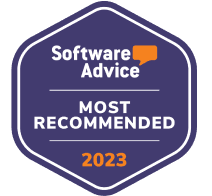Breeze Through Cloud Security: Discover How Small Businesses Can Outsmart Cyber Threats
Tuesday, August 2, 2022

Cloud computing has become increasingly popular in recent years. It's been a game-changer for businesses, offering increased flexibility and cost savings. But let's be real. It also brings a new set of security challenges to tackle.
You see, cloud security has this thing called the "shared responsibility model." It's like a team effort where the cloud provider handles infrastructure security, and you take care of your data and applications. It's important to know your part in this teamwork to avoid any false sense of security.
Now, with cloud data living on servers outside of your control, data breaches can be a concern. Plus, let's not forget the complexity of cloud environments – there's a whole lot going on, and keeping an eye on everything is no easy task.
But worry not! We've got your back with some tips to help you ace cloud security.
Understanding Cloud Security
Cloud security refers to the policies, technologies, and controls that protect cloud-based systems, applications, and data from unauthorized access, theft, and other cyber threats.
Imagine cloud security as a protective umbrella for your digital files and information. When you store your data in the "cloud," it means you're saving it on a network of remote servers managed by a service provider, instead of on your personal computer or a local server.
Cloud security is a set of measures and tools designed to keep your data safe and private while it's stored in the cloud. This protection not only prevents unauthorized access to your information but also ensures that it remains intact and readily available to you and other authorized users.
Think of it like a secure vault where you keep your valuable belongings. The cloud service provider acts as the vault's security guard, ensuring that only authorized people can access the vault and that the items inside remain safe from damage or theft.
Cloud Security Challenges for Small Businesses
Small businesses may face challenges related to cloud security when migrating to cloud-based services.
Access control: Ensuring that only authorized people can access your sensitive data can be difficult, as cloud providers may not have foolproof security measures in place to prevent unauthorized access.
Data sovereignty: When using cloud services, your data might be stored in different countries, subject to various regulations. This can create legal and compliance challenges for small businesses.
Vendor lock-in: If you become too reliant on a specific cloud provider, it may be tough to switch to another provider without facing disruption and additional costs.
Skills gap: Small businesses may lack the necessary knowledge or expertise to manage cloud security effectively, making it harder to protect data and comply with regulations.
Existing investments: If a small business has already invested heavily in on-premises data centers, shifting to the cloud might not seem like the best use of resources, and it could be difficult to justify the transition.
To put it simply, small businesses have to deal with many obstacles when it comes to cloud security. Keeping sensitive data safe and following the rules might seem tough, but don't worry! With some smart planning and help from experts, you can tackle these challenges head-on.
The Benefits of a Secure Cloud Environment
Think of cloud security for small businesses as a highly-skilled, trustworthy security team for your valuable digital assets. You'll get:
Cost-effective protection: Instead of spending heavily on in-house security infrastructure and personnel, small businesses can rely on the cloud provider's expertise, which often comes at a fraction of the cost.
Accessible data: Cloud security enables you to access your data securely from anywhere, anytime, making it easier to manage and share information with your team.
Easy backups: Cloud security allows for automatic backups, reducing the risk of losing important data due to system crashes or accidents.
Flexibility: The cloud allows your business to scale its security needs up or down according to growth or changes in the threat landscape.
Remote work: Cloud security enables your team to work remotely, accessing data securely from different locations, which is especially beneficial during times when on-site work is not possible.
In essence, cloud security simplifies and strengthens the protection of your valuable data, giving you peace of mind and allowing you to focus on growing your business.
Choosing the Right Cloud Security Solutions
As a small business leader, choosing the right cloud security solutions can be a bit of a headache. However, here are some steps you can take to simplify and streamline the process:
Define your security needs: Start by defining your security requirements and assessing the risks your business faces. This can help you identify the security features you need and the level of protection required.
Research cloud providers: Look for providers that offer the features you need, such as encryption, access controls, and intrusion detection. Make sure to read reviews and ask for recommendations from other small business owners to ensure the provider has a good reputation for security.
Check compliance: Verify that the cloud provider complies with relevant regulations, such as GDPR, HIPAA, or PCI DSS, if applicable to your industry.
Evaluate costs: Determine the total cost of ownership, including not only the subscription fees but also any training, integration, or customization costs.
Test the solution: Before committing to a cloud security solution, test it thoroughly to ensure it meets your needs and that it is easy to use and manage.
Consider scalability: Choose a provider that can scale with your business as you grow and that can integrate with other tools and applications you use.
Get support: Choose a provider that offers reliable support and that can help you troubleshoot any issues that arise.
By following these steps, you can choose the right cloud security solution that meets your business's unique needs, provides adequate protection, and helps you stay compliant with relevant regulations.
Explore using Managed Security Services for Additional Data Protection
Managed security service providers (MSSPs) can help small businesses overcome limited resources by providing expert monitoring and threat detection.
By hiring a cybersecurity provider like Lockwell, you don't have to worry about managing the security of your online systems yourself. Instead, the experts take care of it for you, so you can focus on running your business. This can save you time, money, and stress, while ensuring your digital assets are well-protected.
We offer:
Comprehensive protection: This includes threat monitoring, vulnerability assessments, intrusion detection and prevention, and incident response. This comprehensive approach ensures your data remains secure from all angles.
Affordability: Hiring an in-house team of cybersecurity experts can be expensive, particularly for a small business. We provide cost-effective solutions tailored to small businesses, ensuring that digital safety is within reach for everyone, no matter your budget.
24/7 monitoring: Cyber threats don't take a break, and neither do we. Lockwell’s AI Security Engine provides round-the-clock monitoring of your systems, ensuring that any suspicious activity is detected and addressed immediately.
Time-savings: Managing cybersecurity is a time-consuming task. By outsourcing this responsibility to Lockwell, you can focus on your core business operations and leave the security concerns to the experts.
So, gear up, embrace the strategies discussed, and become a champion of cloud security for your small business. Together, let's create a secure digital world where businesses of all sizes can thrive and succeed.













